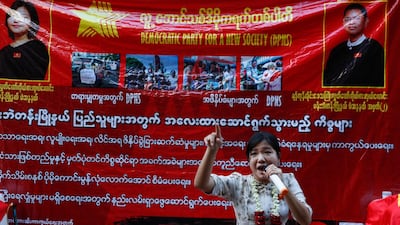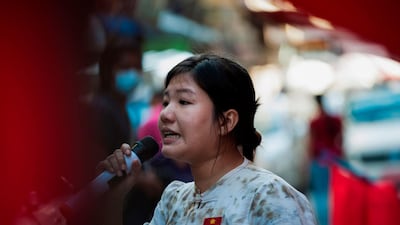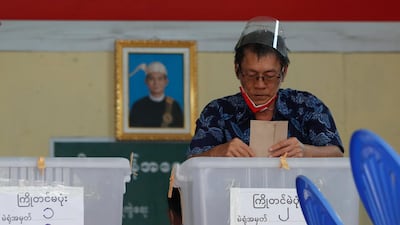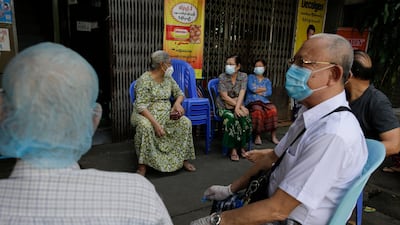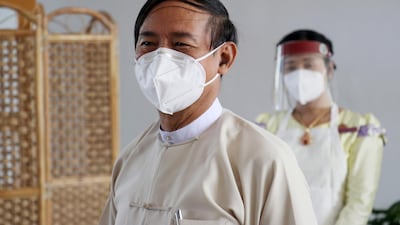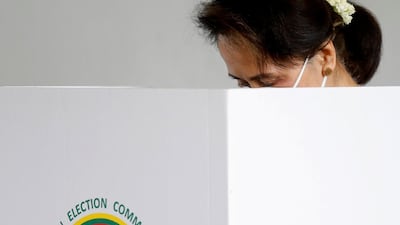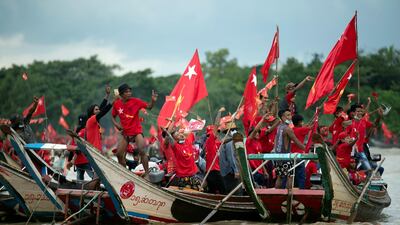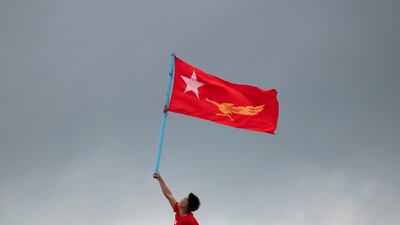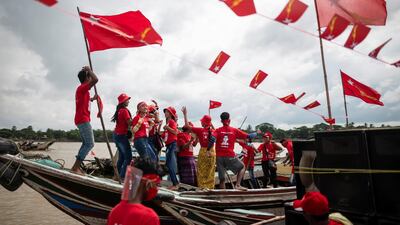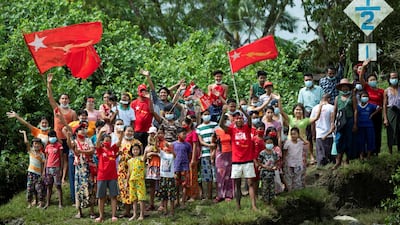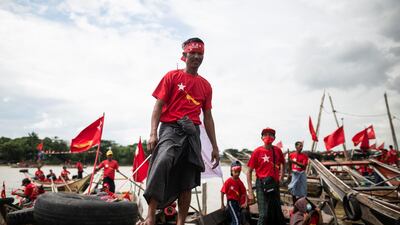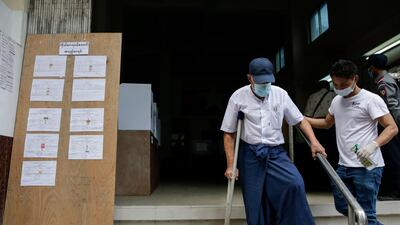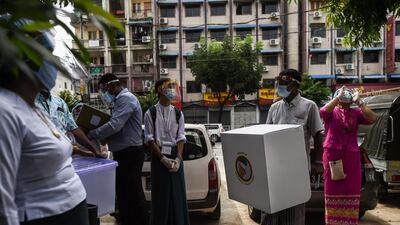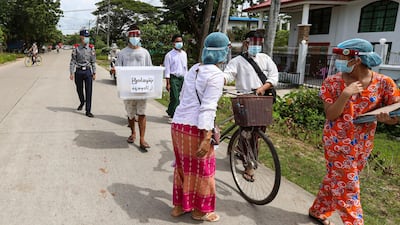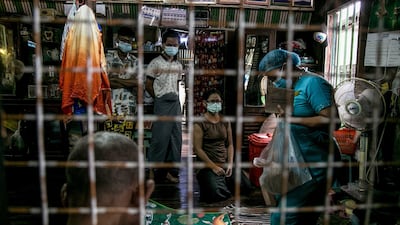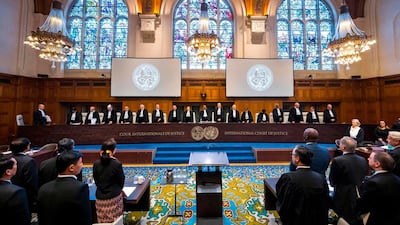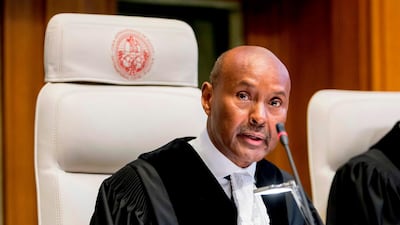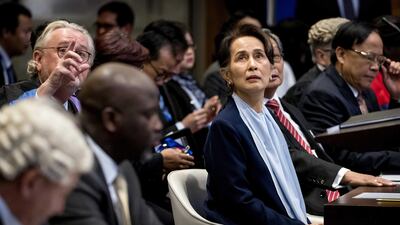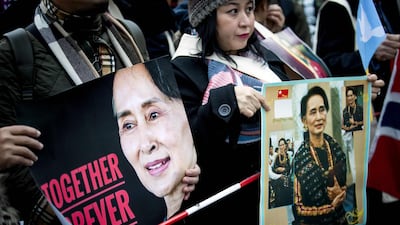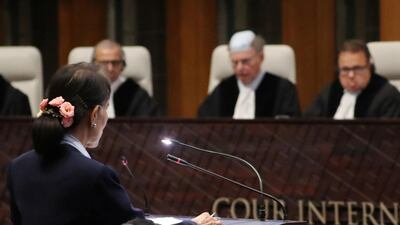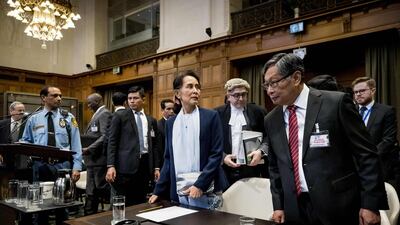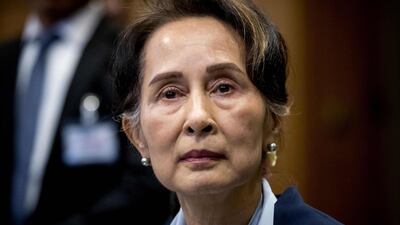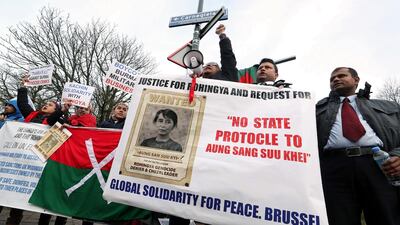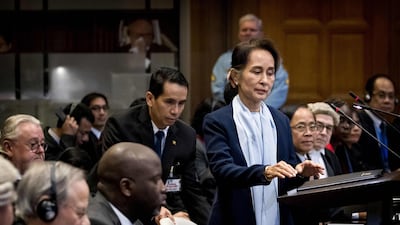This US presidential election has cast such a long shadow that other events that would normally be noted have been overlooked. In the case of Myanmar’s general election, which takes place this Sunday, that may be to the relief of many in the country’s powerful elites. For, what the polls will mark is one of the worst instances of democratic backsliding and betrayal of hopes that the world has ever seen.
The contrast with the last election in 2015 is stark. There was huge excitement then, as it was seen as being the first properly contested national vote since the generals had taken over the country in 1962. Yes, there had been a general election in 1990 – but the military refused to accept the National League for Democracy's overwhelming victory, and placed the NLD's leader, Aung San Suu Kyi, under house arrest. There was also another in 2010, after the junta followed through on its promise to put Myanmar on a "roadmap to democracy". But the NLD was effectively banned from taking part, and with the country still run by men who had swapped their uniforms for civilian clothes, many thought that Myanmar had become a democracy in name only.
In 2015, however, the NLD was allowed to participate. True, 25 per cent of the seats in parliament were still reserved for military appointees, and Ms Suu Kyi would be barred from the presidency by a constitutional provision tailormade to target her – anyone whose children are foreign citizens is excluded, and her two sons are British. The military retained other powers, such as the right to name the ministers of defence, home affairs and border affairs.
But it seemed as though the voices of the people would finally be heard; and they were. The NLD won 86 per cent of the seats in the two houses of parliament, and while Ms Suu Kyi couldn’t be the official head of state, the new role of “State Counsellor” was created for her and she has been internationally recognised as the de facto leader of the country ever since.
Since then, the disappointment has been so crushing that a recent Foreign Policy article accused Ms Suu Kyi's NLD of having "undermined democracy in Myanmar" and of "pursuing policies that resemble those of the military government that it fought for decades". That is quite a charge considering that the generals had turned a once-wealthy country into an economically ruined pariah police state.
What prompts that conclusion is to a great degree but not solely the tragedy of the Rohingya, whose displacement, murder and torture most of the world considers to constitute genocidal ethnic cleansing; but whose plight the NLD is in denial about, if not actively complicit in it.
The international NGO Human Rights Watch says that this election will be “fundamentally flawed” and held in a situation where the media has been muzzled and government critics are being prosecuted. The All Burma Federation of Trade Unions and the All Burma Federation of Student Unions want voters to boycott the election until the military-drafted constitution is changed. The jubilation felt globally in 2015 has so utterly dissipated that the NLD of today appears to be an entirely different party to the one whose struggle was supported for decades by eminent human rights figures such as South African cleric Desmond Tutu.
At the core of this is, of course, Ms Suu Kyi. She is the NLD. Her control is so total that she has not just no rival but no obvious successor. It is worth remembering who she once was. When "the Lady", as she is known, was awarded the Nobel Peace Prize in 1991, the organisers called her a "modern symbol of freedom" and "an outstanding example of the power of the powerless". In 2006, Britain's New Statesman magazine conducted a readers' poll to name the greatest "hero of our time". Ms Suu Kyi came top, receiving three times as many nominations as the next placed figure – Nelson Mandela.
Now that she has been so thoroughly disgraced that her Nobel would surely have been revoked were there a process to do so – there isn't – her supporters abroad must ask how they misread her so badly. The truth is that there were many signs that she was not the person they thought she was. In 2012, well before she was in government, I wrote in these pages that "Ms Suu Kyi has been notably unforthcoming about the aggression inflicted on the Rohingya" – a year in which 100,000 were displaced and villages were torched. She has always been closer to the army – founded by her father, Myanmar's independence hero, Gen Aung San – than was widely understood.
turn away
For such a formerly admired person, it is surprising how critical three of her biographers, Justin Wintle, Bertil Lintner and Peter Popham, are of her in their books. Her intransigence and inflexibility are repeatedly described, and the haughtiness of her and her staff are amusingly recounted in Mr Popham's second volume, The Lady and the Generals. Arranging meetings with Ms Suu Kyi was so difficult, Mr Popham wrote, that one visitor "in exasperation… phoned her office himself. 'I am the president of Mongolia,' he told the functionary at the other end. He was told to 'please send in your CV'."
Ms Suu Kyi turned out to be a classic case of international human rights organisations assuming that, because she was opposed to a dictatorship, she must be a liberal of their stripe too. Very clearly she is not. What she means by "human rights" does not include an iota of compassion for the Rohingya nor unanimity on many of the freedoms essential for a democracy to be worthy of the name.
Myanmar will have its election, and Ms Suu Kyi and the NLD will probably win. They will do so squarely if not totally fairly, because they are genuinely popular in a country that is rife with anti-Muslim prejudice. But Myanmar is no longer a symbol of hope. If this vote attracts relatively little attention internationally, it will be because Ms Suu Kyi’s former admirers are so sad and disillusioned that they would rather turn away. Dwelling on the downfall of one of their most treasured secular saints is simply too painful.
Sholto Byrnes is an East Asian affairs columnist for The National
